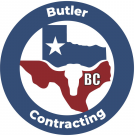If you own horses, it is a necessity to have the right fence to give them space to graze and play, but also keep them safe. A fence marks the area where the horses roam, but it also creates a barrier between the horses and their would-be predators. The wrong fence can also be an injury risk for a spooked horse or even just a horse at play. There are many options for fence styles and materials, but you’ll find that the best fences for horses are usually a combination of 2 or more fence styles.
Wood
There are many options for materials within the wood category alone, but we’ll take a high level view and stick to the basic concept. Wood fences have been used to contain horses for a long time and they have a very appealing look to them, although typically the wood boards are placed on the inside of the posts to provide a smooth surface for the horses. This means that those on the outside aren’t going to see the nicest looking part of the fence. Typically, wood fences for horses are made of 3 or 4 boards placed horizontally across posts. The fence needs to be 4 ½ to 5 feet tall at a minimum with the bottom board being 6-8 inches off the ground. This will prevent foals from rolling under. You also don’t want the bottom boards too high so that a horse that lies down doesn’t get their feet caught when they’re trying to get back up.
Though wood is a solid choice, the downsides to a wood fence are that they require a fair amount of maintenance – they need to be stained, sealed or painted every few years. They are also very rigid which can really hurt a horse that crashes into it. Some other fences have some “give” to them, but wood fences do not. There is also the risk of the wood drying out in the sun and cracking or splintering which provides another problem for a horse that likes to rub up against the fence.
PVC
There are several visually appealing options when it comes to PVC fences and they are built to give way if a horse were to crash through. They have the opposite problem that wood fences have. There’s a variety of colors available and the only maintenance required is to wash the fence every so often. As you might imagine, a fence that easily breaks when a large animal comes through certainly has containment issues, that’s why it is often paired with an electric fence so that the horses won’t lean on it.
PVC fencing can make your property look like something described in a novel, but it is also very costly if budget is of consideration.
Wire
There are a few different types of wire fences available. Woven Wire, Smooth Wire and V-Wire (also referred to as Diamond Wire) are all slight variations of a wire mesh fence. The general rule is that an opening in the mesh should not be larger than 2” x 4” or just not big enough for a horse to get its hoof caught.
It’s important to have a high tensile wire so that when the horse leans on the fence, the tension pulls the fence back into place and doesn’t bend and change its form. The V-Wire pattern is one of the more popular styles and it works well in conjunction with other fence materials. The fence that corralled Secretariat was a V-Wire Mesh with 3 horizontal wood boards across the posts. V-Wire or Diamond Mesh is also more expensive than the woven or smooth wire options. Be aware that some variations of high tensile wire installed can cut a horse severely and to the bone. If you plan to use this type of wire it is a good idea to install a top rail to prevent injury.
Pipe
A pipe fence is really only recommended if you live in an industrial area with an excess of pipe that you can get inexpensively. Otherwise it can be difficult to source and potentially very expensive. A pipe fence is also another rigid fence that won’t give way were a horse to collide with it.
Electric
It usually only takes one encounter with a “hot” electric fence for a horse to steer clear of it. The right electric fence can also serve to keep predatory animals out. It’s a fairly inexpensive and safe way to fence in an area for your horses and can provide a longer life for other styles of fences when used in conjunction by preventing the horse from leaning and putting stress on your wood or PVC fence. Electric fences do, however, require a bit of maintenance in the form of clearing tree branches from touching the wire. You can also add flex material to the top rail to give the horse some safety when they try to reach over.
Vinyl
A very flexible option, if a horse bumps into a vinyl fence, they will typically just bounce off. This can also have an electric wire run along the vinyl slats.
Don’t Use Barbed Wire
Barbed wire is a material that shouldn’t be used for horses. They can get cut from it and if they get spooked and run into the fence and get tangled in it, serious injury can occur. It’s best to stay away from barbed wire when possible. There are safer and more visually appealing options available.
Butler Contracting Builds Fences
We’d love to build the right fence to keep your horse safe! To get a quote, use our Fence Estimator Tool or give us a call at (844) 628-8537



